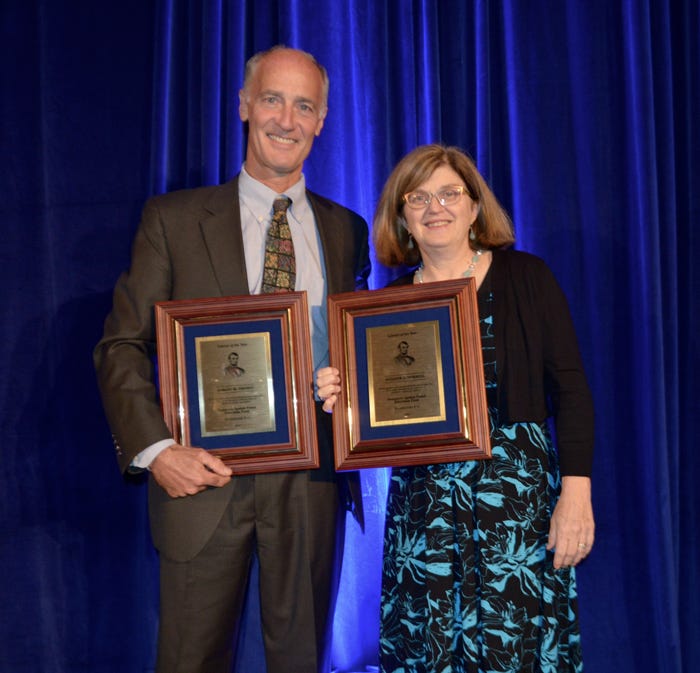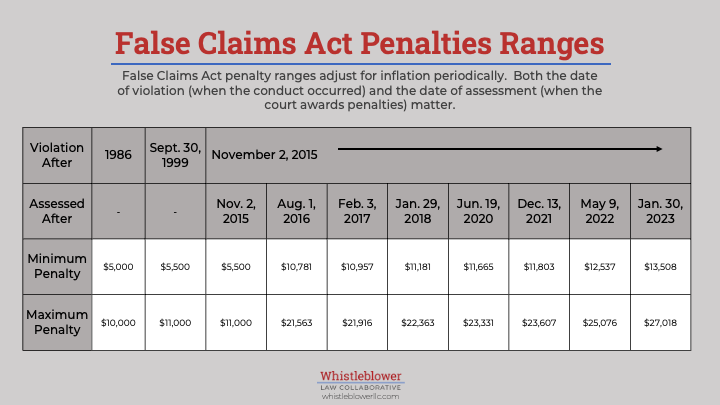Image from yes magazine.
What is the US FALSE CLAIMS ACT and could it assist us in our pursuit for a more Just Society. We are in the vestiges of a common law system that prioritized the Rule of Law. Mostly we are being nudged to throw that out as antiquated, colonial, oppressive. We are being hoodwinked
Without the Rule of Law, we have no protection as citizens against our governments.
“The Federal False Claims Act is the U.S. Government’s primary weapon for combatting fraud. It allows whistleblowers to sue persons or entities that are defrauding the government and recover damages and penalties on the government’s behalf. “
Do you see some interesting applications that should be considered?
Yep I do. You can brainstorm in the comments.
This law collaborative is looking for clients to do just that. Should we get them some business? Impressive bios can be found here.
“Whistleblower Law Collaborative co-founders Suzanne E. Durrell and Robert M. Thomas, Jr., joined forces in 2003 to represent whistleblowers in qui tam actions under the False Claims Act.”
COVID 19 FRAUD under the following examples:
“As federal and state governments fight the COVID-19 pandemic, they also will face waves of fraud. Unscrupulous profiteers will compound the pandemic’s misery by scheming to steal taxpayer money. In fact, they already have done so. COVID-19 has caused both health care and economic crises. With the unprecedented trillions of dollars that governments will be spending, the scale of fraud is likely to be unprecedented as well.
Rapidly emerging and evolving fraud schemes target our health care systems and programs, our government procurement channels, and our financial markets. We represent whistleblower clients in all of those areas. Specific areas where we expect to find COVID-19 fraud include:
grants to pharmaceutical and biotech companies for vaccine development, research, and clinical trials for therapies and treatments
purchases of medical and personal protective equipment, devices, testing kits, and drugs
Paycheck Protection Program loans to businesses
stimulus funds targeted to specific industries
bills to Medicare and Medicaid for hospital stays, procedures, or tests
funds to nursing home operators to enhance safety and compliance
misrepresentations to investors and the marketplace by companies
This list is by no means exhaustive. Law enforcement and government agencies are working hard to protect public health and the public fisc from COVID-19 fraud. However, they need help. Whistleblowers are important now more than ever to help uncover scams, recover money for the government, and bring to justice those who exploit this crisis for illegal gain.
If you know of COVID-19 fraud, please contact us. Whistleblowers can be eligible for rewards under the False Claims Act or other whistleblower programs. To read more about COVID-19 fraud, please see the posts below.”
They explain that in the US:
“The statute provides whistleblowers financial rewards as well as job protection against retaliation.
The federal False Claims Act (FCA), 31 U.S.C. §§ 3729, et seq, is sometimes known as “Lincoln’s Law,” because it was enacted during the Civil War to counter widespread fraud by contractors supplying the military. More recently, it has been amended to enhance the Government’s ability to recover money for losses caused to it by fraud.
A key feature of the law is the qui tam (or whistleblower) provision under which an individual or entity (known as a “relator”) with knowledge of fraud against the Government may file a lawsuit under seal on behalf of the United States. If the case is successful, the relator can share in the Government’s monetary recovery and recover attorney’s fees and costs from the defendant. Congress hoped that creating these monetary incentives, along with provisions protecting whistleblowers from reprisal or retaliation would encourage whistleblowers to come forward and incentivize private lawyers to commit legal resources to representing whistleblowers in prosecuting fraud on the Government’s behalf.
The FCA has been highly successful as a public-private partnership: as of the end of 2018, Government recoveries have exceeded $59 billion following 1986 amendments that strengthened the False Claims Act, with rewards to whistleblowers totaling billions of dollars.
Liability Under the False Claims Act
The FCA is written broadly, with the aim of reaching all types of fraud that might result in financial loss to the United States. It identifies seven violations, any of which is a violation of the False Claims Act.
False Claims – Presenting, or causing the presentment, of a false claim for payment or approval. 31 U.S.C. §§ 3729(a)(1)(A).
False Records or Statements – Making, using, or causing others to make or use, a false record or statement that is material to a false or fraudulent claim. 31 U.S.C. §§ 3729(a)(1)(B).
Conspiracy – Conspiring to violate the False Claims Act. 31 U.S.C. §§ 3729(a)(1)(C).
Conversion – Failing to return government property. 31 U.S.C. §§ 3729(a)(1)(D).
False Receipts – Making or delivering a receipt of government property without completely knowing that the information in it is true. 31 U.S.C. §§ 3729(a)(1)(E).
Unlawful purchase of Government Property – Buying public property from a government employee who may not lawfully sell it. 31 U.S.C. §§ 3729(a)(1)(F).
Reverse False Claims – Making, using, or causing to be made or used, a false record or statement material to an obligation to pay money to the government; or conceals, avoids, or decreases an obligation to pay money to the government. 31 U.S.C. §§ 3729(a)(1)(G).
FALSE CLAIMS VIOLATIONS AND PROHIBITIONS EXPLAINED
False Claims Act Damages and Penalties
The United States may recover up to three times the damages caused to the Government by the fraud plus a sizeable civil penalty for each violation.
While the False Claims Act references a penalty of between $5,000 and $10,000, it is indexed to inflation; by May 2022, False Claims Act penalties ranged as high as $27,018 per violation.
FALSE CLAIMS ACT PENALTIES EXPLAINED
False Claims Act Materiality
A requirement of all fraud law (and contracts and torts for that matter), is that the subject of the fraud be material. The purpose of the materiality requirement is to ensure that the “thing” that someone was defrauded about is important enough to justify legal action. It is the same with the False Claims Act. The materiality requirement ensures that the False Claims Act applies only when the false or fraudulent conduct, was important enough that it would have influenced a government decision.
Since 2009, the False Claims Act has defined the term material as “having a natural tendency to influence, or be capable of influencing, the payment or receipt of money or property.” 31 U.S.C. § 3729(b)(4). In Universal Health Servs., Inc. v. United States ex rel. Escobar, the Supreme Court held that that definition applied to all actions under the False Claims Act.
The Supreme Court went on to identify factors that were relevant but not dispositive to materiality:
The Government’s decision to expressly identify a regulatory provision as a condition of payment;
Evidence that the defendant knows that the Government consistently refuses to pay claims in the mine run of cases based on noncompliance with the particular statutory, regulatory, or contractual requirement;
If the Government pays a particular claim in full despite its actual knowledge that certain requirements were violated, that is very strong evidence that those requirements are not material;
Or, if the Government regularly pays a particular type of claim in full despite actual knowledge that certain requirements were violated, and has signaled no change in position, that is strong evidence that the requirements are not material;
136 S. Ct. 1989, 2002.
In the aftermath of Escobar, defendants have tried to argue that courts should dismiss False Claims Act cases on materiality grounds. For the most part, they argue that lack of evidence that the government refused to pay when it learned of identical fraud is a requirement for whistleblowers and the government. Escobar said no such thing and for the most part, courts have rejected these claims in favor of a holistic approach to determining whether fraud is material.
FALSE CLAIMS ACT MATERIAL AND MATERIALITY EXPLAINED
Establishing Knowledge
While the False Claims Act is an anti-fraud law that requires a “knowing” violation, it does not require proof that the fraudster had a specific intent to defraud the Government. Rather, the False Claims Act provides that the terms ‘knowing’ and ‘knowingly’ simply mean that a person:
had actual knowledge that a statement or claim was false
acted in deliberate ignorance of whether information was true or false, or
acted in reckless disregard of truth or falsity
False or Fraudulent Claims
At the heart of several provisions of the False Claims Act is whether there is a false or fraudulent claim to the Government for payment. The law defines “claim” broadly as “any request or demand, whether under a contract or otherwise, for money or property and whether or not the United States has title to the money or property, that— (i) is presented to an officer, employee, or agent of the United States; or (ii) is made to a contractor, grantee, or other recipient, if the money or property is to be spent or used on the Government’s behalf or to advance a Government program or interest, and if the United States Government— (I) provides or has provided any portion of the money or property requested or demanded; or (II) will reimburse such contractor, grantee, or other recipient for any portion of the money or property which is requested or demanded.” 31 U.S.C. § 3729(b)(2).
Reverse False Claims/Obligations to Repay
There is also what is known as the “reverse false claim” provision, which is where a person underpays or fails to pay back what they are obligated to pay the Government. The term “obligation” is defined generally in the False Claims Act as “an established duty, whether or not fixed, arising from an express or implied contractual, grantor-grantee, or licensor-licensee relationship, from a fee-based or similar relationship, from statute or regulation, or from the retention of any overpayment.” 31 U.S.C. § 3729(b)(3). In the health care context, the term “obligation” includes overpayments that have been retained for more than 60 days after they were identified as overpayments.
Statutory Limitations That Bar Qui Tam Cases
A whistleblower may be barred from bringing or maintaining a qui tam complaint under certain circumstances. The two most important restrictions are known as the “first to file rule” and the “public disclosure bar.”
The “first to file rule” generally prevents a second relator from filing suit or recovering a reward if someone else has already filed the same allegations or claim with the court.
The “public disclosure bar” generally prevents a relator from filing or maintaining a qui tam case where substantially the same allegations or transactions have already been disclosed in the news media, in a federal court or administrative proceeding to which the United States is a party, or in a Congressional or other Government report, hearing, audit, or investigation.
The “Tax bar” prevents use of the False Claims Act to recover for tax fraud. Due to the Tax Bar, the False Claims Act does not apply to money owed to the IRS. While the IRS whistleblower program does apply to tax fraud, it lacks features that make the False Claims Act so valuable.
Whistleblower Reward (“Relator’s Share”)
The whistleblower’s share of the Government’s monetary recovery depends on several factors. The most important is whether the Government intervened in and “took over” the relator’s FCA case or whether the Government declined to intervene and the relator chose to proceed on his or her own to prosecute the case. The general guidelines are as follows.
Intervention: the FCA provides for a relator share of 15%-25% of the proceeds collected by the United States “depending upon the extent to which the person substantially contributed to the prosecution of the action.”
Declination: the FCA provides for a relator share of 25%-30% of the proceeds collected by the United States based on what the court finds “reasonable” for collecting the damages and penalties.
Exceptions: The share may be reduced or eliminated where the relator was a planner and initiator of the fraud, or was criminally convicted, or based their qui tam action on information learned from a Government.
Attorneys’ Fees and Costs
A losing defendant is required to pay the relator’s reasonable attorneys’ fees and costs. If a relator proceeds with a case after the United States has declined to intervene, and loses, the court may award attorneys’ fees and costs to the defendant if the court finds that the relator’s claim was “clearly frivolous, clearly vexatious, or brought primarily for purposes of harassment.”
Anti-Retaliation Provisions
The False Claims Act protects employees, contractors, or agents who are discharged, demoted, suspended, threatened, harassed, or discriminated against in any other way because of lawful acts taken to stop violations of the FCA. Liability for retaliation is not limited to one’s employer, but may extend to others. Wronged whistleblowers may recover reinstatement with the same seniority status they would have had but for the discrimination, two times the amount of back pay plus interest, and compensation for any special damages sustained such as emotional distress and attorney’s fees and costs. A retaliation case may be brought together with or separately from a FCA qui tam complaint.”
Questions on whether a pay to play scheme where CCP funnels money to individuals related to government officials, implies that in return some federal funds reached the CCP. If so what sort of whistleblower would be needed and is there one in place. Could the funds that reached the private individual be clawed back through the False Claims Act.
What about federal funds into any labs, where prima facie it would be expected that the contents of the labs would not be weaponized against citizens. If something is developed so virulent so transmittable, is it a first principled assumption that any release in any locale implies a use against US citizens? And is it a violation of the FCA.
The minute it becomes ‘public’ disclosure there is a bar to filing under the FCA.
THUS, ANY WHISTLE BLOWERS SHOULDN’T BLOG OR WHISPER TO CONGRESS OR THE MEDIA. THEY SHOULD CONTACT THIS LAW FIRM ASAP, file their case before doing reporting on twitter or elsewhere.
Thinking out of the box.
there are other labs out there;
there may be other pay to play schemes and influence peddling out there;
many examples on their site are listed for pharma fraud and covid 19 fraud;
other!
WHISTLE BLOWERS NEED TO BE EMPOWERED WITH LEGAL ADVICE BEFORE TALKING TO THE PRESS.






It feels reassuring to know that there are good laws in place. However, I'm worried about our own laws. I thought Canada had laws to keep its citizens safe from manipulative individuals. Laws against serious betrayals and attempts to overthrow the government. In an interview at Harvard, WEF's Schwab proudly mentioned that his organization managed to get involved with over half of the members in the Canadian House of Commons. That's concerning. And it seems like we're unable to prevent these global influencers from imposing their control over us.
- Luc